The New York Timesで見つけた記事を共同通信が紹介してくれていました。
**********
「品質低下」に危機感 日本のリコール増で米紙 (共同通信) - goo ニュース
2006年 9月21日 (木) 21:09
【ニューヨーク21日共同】米紙ニューヨーク・タイムズ(電子版)は21日、日本のトヨタ自動車やソニーが最近、リコール(無料回収・修理)などを繰り返していることから、日本製品の品質が低下しているのではないかという危機感や不安が日本国内で高まっていると報じた。
記事は冒頭、「品質」がテーマのNHKの「プロジェクトX」のような番組が人気番組となるのは「おそらく日本だけ」と紹介。その上で、最近2カ月のトヨタやソニーの大規模なリコールを挙げ、米国ではリコールはかなり頻繁に発生するのでほとんどが公表されないのに対し、品質が国のアイデンティティーの一部になっている日本では国全体に危機意識を生み出したと分析した。
**********
要旨は大体これでよいと思いますが、記事は小学校教育の重要性を説き立命館大学付属小学校の蔭山校長の教育方針を紹介しています。
あわせて、アジア諸国のもの作りに関する質の向上を説いています。読んでみてください。なお、ヘッドラインは、直訳すると、「日本人は、質が低下しているのに、いらいらしている」となります。“fret”の意味、これで覚えてしまいましょう。
それにしても、最近の日本人、相当ぶったるんでいるのかもしれません。国旗・国歌で目くじら立てるよりも、学校の先生はきちんとその辺を指導すべきでしょう。もちろん、親の責任も大きいですが。
それでは、関心のある方は原文記事にチャレンジしてみてください。
**********
September 21, 2006
Japanese Fret That Quality Is in Decline
By MARTIN FACKLER
TOKYO, Sept. 20 — Perhaps only in Japan could a television series like “Project X” have become one of the most popular TV shows. No, it isn’t a science fiction thriller. It’s about product quality.
More specifically, it’s about a bunch of corporate engineers whose hand-held calculators and ink-jet printers helped turn this nation into an industrial powerhouse.
So it is little wonder that a recent surge in recalls of defective products has set off national hand-wringing and soul-searching here, in radio talk shows, on the front pages of newspapers and in the hushed corridors of government ministries.
Even in local noodle shops, the conversation turns to the bruised pride and fears that Japan may be losing its edge at a time when South Korea and China are breathing down its neck.
“Craftsmanship was the best face that Japan had to show the world,” said Hideo Ishino, a 44-year-old lathe operator at an auto parts factory in Kawasaki, an industrial city next to Tokyo. “Aren’t the Koreans making fun of us now?”
“It took us years to build up this reputation,” Kazumasa Mitani, 32, a co-worker, chimed in. “Now we see how fast we can lose it.”
This, after all, is a country that has been obsessed with perfection. Tokyo’s sprawling subway and train networks run like clockwork, accurate to the minute. Television factories assign workers with rags to wipe down every new set, lest a Japanese consumer find a single fingerprint and return it. In supermarkets, many apples and melons are individually wrapped in protective plastic foam.
In the last two months, the national angst increased after large-scale recalls of defective products made by Toyota and Sony, the country’s two proudest corporate names. In the United States, product recalls occur so frequently that most are barely noticed. But here, they have created something of a crisis in a country where manufacturing quality is part of the national identity.
The fingers have no main culprit to point to. Some say young Japanese are too lazy. Others say American-style management is to blame.
The spate of bad news has not stopped. Just this week, Sony suffered another blow when Toshiba announced that it was recalling 340,000 Sony-made laptop batteries, after last month’s recalls of 5.9 million batteries. And Toyota, which has experienced a soaring number of recalls in recent years, said Wednesday that it would hire 8,000 more engineers to strengthen quality.
Some here admit that Americans may find the fuss perplexing. But Japan is the country that elevated the American quality guru W. Edwards Deming to virtual sainthood and conquered global markets with its eminently reliable cars, cameras and computers. For a time, American and European executives even flocked here to learn Japanese quality-control concepts like “kaizen,” meaning “improvement.”
World-leading craftsmanship became so central to the nation’s self-image that many Japanese seem to have trouble imagining their country without it. The recalls are discussed here in the same breath as Japan’s rising rates of crime and juvenile delinquency and other signs that the country’s tightly woven social fabric may be starting to fray.
In the news media, Sony’s and Toyota’s quality problems have frequently topped coverage of wars in Iraq and Lebanon. And Nihon Keizai Shimbun, the leading economic daily, began a front-page investigative series this month called “Can Japan Protect Quality?”
“Toyota and Sony have been a wake-up call that something is amiss in Japan,” said Takamitsu Sawa, an economics professor at Ritsumeikan University in Kyoto. “Japan seems to have lost something important on the way to becoming a developed country, and many Japanese want to get that back.”
One of those is Toshihiro Nikai, Japan’s trade minister, who twice last month took unusually blunt steps in this nation that normally recoils from confrontation. He sent letters to executives from Sony ordering them to report on quality-control improvements after back-to-back recalls by Apple and Dell of faulty Sony-made laptop batteries. Sony promised to comply and diligently sent employees to receive the letters by hand. It was the first time such orders had ever been issued to Sony.
“This is very rare,” said Atsuo Hirai, assistant chief at the trade ministry’s information product safety section. Rarer still was the fact that a few weeks earlier, the transport ministry issued similar orders to Toyota.
Hiroshi Okuda, the retired chairman of Toyota and elder statesman of Japan’s business world, called on his countrymen to do more about what he saw as the declining competitiveness of Japanese manufacturing.
“Japan lacks a sufficient sense of crisis,” he warned last month.
The sense of crisis has moved even into the classroom.
In Japan’s schools, once lauded for their hard-working students and sharp-penciled test takers, test scores have fallen recently below those of countries like Singapore, South Korea and Finland. Dozens of educators at elementary and high schools across Japan are sounding alarms about declining standards.
At Ritsumeikan Elementary School in Kyoto, the aim is more discipline and memorization, so students now stand at attention every morning to recite in unison parts of ancient Confucian texts and other classics. They are timed to see how quickly they can regurgitate multiplication tables.
“More self-control leads to a better work ethic,” says the school’s principal, Hideo Kageyama, who has written more than 30 drill workbooks, which he said have sold four million copies since 2002. “Our society’s future is at stake.”
To be sure, Japanese companies continue to dominate production of many high-tech products, from digital cameras and color copiers to solar cells and the delicate optics used to etch circuits onto most of the world’s computer chips. And despite its problems, Toyota still appears on track to dethrone the flailing General Motors as the world’s largest carmaker in the next year or two.
“They’ll learn from their mistakes,” said Yuji Fujimori, an electronics analyst in Tokyo for Goldman Sachs.
Still, Sony’s problems have not been limited to batteries. The company worked furiously over the summer to resolve problems in production of its PlayStation 3, its widely awaited game console, which is due out in November.
“If asked if Sony’s manufacturing ability has declined, at this point today I have to say yes,” said Ken Kutaragi, chief executive of Sony’s video game division.
Various reasons crop up as possible explanations for declining quality. Universities bemoan that new students are more interested in literature and the liberal arts than engineering. Applicants to engineering programs are down to 8.7 percent of all university applicants this year from 12.3 percent eight years ago.
“In the old days, there were a lot of students who wanted to join the front lines of manufacturing, and really gave it their all,” said Chitoshi Miki, an executive vice president in charge of student education at the Tokyo Institute of Technology, one of the nation’s top engineering universities. “Now, no one even wants to break a sweat.”
Others have begun to blame recent American-style management changes, like the end of traditional lifetime job guarantees. Fujitsu, the electronics maker, has backed away from basing salaries on individual performance, saying it hurt employee morale and undermined team work.
As Japan wrings its hands, say some economists, Asian competitors have been closing in. Lee Kwang Hoon, an electronics analyst at Hanhwa Securities in Seoul, said that the recall of Sony-made batteries could offer an opportunity for the biggest Korean makers, Samsung and LG, to rival Sony in market share.
“The biggest change may not be that Japan has dropped in quality,” said Masaru Kaneko, an economics professor at Keio University in Tokyo, “but that Asia is catching up.”
**********
いかがでしたか。もっと速くきちんと正確に読めるようになりたいという方は、どうぞ当英語塾INDECをご活用ください。
INDECは、夢と希望にあふれた若者を応援しています!
公式サイト: http://indec.jp
**********
「品質低下」に危機感 日本のリコール増で米紙 (共同通信) - goo ニュース
2006年 9月21日 (木) 21:09
【ニューヨーク21日共同】米紙ニューヨーク・タイムズ(電子版)は21日、日本のトヨタ自動車やソニーが最近、リコール(無料回収・修理)などを繰り返していることから、日本製品の品質が低下しているのではないかという危機感や不安が日本国内で高まっていると報じた。
記事は冒頭、「品質」がテーマのNHKの「プロジェクトX」のような番組が人気番組となるのは「おそらく日本だけ」と紹介。その上で、最近2カ月のトヨタやソニーの大規模なリコールを挙げ、米国ではリコールはかなり頻繁に発生するのでほとんどが公表されないのに対し、品質が国のアイデンティティーの一部になっている日本では国全体に危機意識を生み出したと分析した。
**********
要旨は大体これでよいと思いますが、記事は小学校教育の重要性を説き立命館大学付属小学校の蔭山校長の教育方針を紹介しています。
あわせて、アジア諸国のもの作りに関する質の向上を説いています。読んでみてください。なお、ヘッドラインは、直訳すると、「日本人は、質が低下しているのに、いらいらしている」となります。“fret”の意味、これで覚えてしまいましょう。
それにしても、最近の日本人、相当ぶったるんでいるのかもしれません。国旗・国歌で目くじら立てるよりも、学校の先生はきちんとその辺を指導すべきでしょう。もちろん、親の責任も大きいですが。
それでは、関心のある方は原文記事にチャレンジしてみてください。
**********
September 21, 2006
Japanese Fret That Quality Is in Decline
By MARTIN FACKLER
TOKYO, Sept. 20 — Perhaps only in Japan could a television series like “Project X” have become one of the most popular TV shows. No, it isn’t a science fiction thriller. It’s about product quality.
More specifically, it’s about a bunch of corporate engineers whose hand-held calculators and ink-jet printers helped turn this nation into an industrial powerhouse.
So it is little wonder that a recent surge in recalls of defective products has set off national hand-wringing and soul-searching here, in radio talk shows, on the front pages of newspapers and in the hushed corridors of government ministries.
Even in local noodle shops, the conversation turns to the bruised pride and fears that Japan may be losing its edge at a time when South Korea and China are breathing down its neck.
“Craftsmanship was the best face that Japan had to show the world,” said Hideo Ishino, a 44-year-old lathe operator at an auto parts factory in Kawasaki, an industrial city next to Tokyo. “Aren’t the Koreans making fun of us now?”
“It took us years to build up this reputation,” Kazumasa Mitani, 32, a co-worker, chimed in. “Now we see how fast we can lose it.”
This, after all, is a country that has been obsessed with perfection. Tokyo’s sprawling subway and train networks run like clockwork, accurate to the minute. Television factories assign workers with rags to wipe down every new set, lest a Japanese consumer find a single fingerprint and return it. In supermarkets, many apples and melons are individually wrapped in protective plastic foam.
In the last two months, the national angst increased after large-scale recalls of defective products made by Toyota and Sony, the country’s two proudest corporate names. In the United States, product recalls occur so frequently that most are barely noticed. But here, they have created something of a crisis in a country where manufacturing quality is part of the national identity.
The fingers have no main culprit to point to. Some say young Japanese are too lazy. Others say American-style management is to blame.
The spate of bad news has not stopped. Just this week, Sony suffered another blow when Toshiba announced that it was recalling 340,000 Sony-made laptop batteries, after last month’s recalls of 5.9 million batteries. And Toyota, which has experienced a soaring number of recalls in recent years, said Wednesday that it would hire 8,000 more engineers to strengthen quality.
Some here admit that Americans may find the fuss perplexing. But Japan is the country that elevated the American quality guru W. Edwards Deming to virtual sainthood and conquered global markets with its eminently reliable cars, cameras and computers. For a time, American and European executives even flocked here to learn Japanese quality-control concepts like “kaizen,” meaning “improvement.”
World-leading craftsmanship became so central to the nation’s self-image that many Japanese seem to have trouble imagining their country without it. The recalls are discussed here in the same breath as Japan’s rising rates of crime and juvenile delinquency and other signs that the country’s tightly woven social fabric may be starting to fray.
In the news media, Sony’s and Toyota’s quality problems have frequently topped coverage of wars in Iraq and Lebanon. And Nihon Keizai Shimbun, the leading economic daily, began a front-page investigative series this month called “Can Japan Protect Quality?”
“Toyota and Sony have been a wake-up call that something is amiss in Japan,” said Takamitsu Sawa, an economics professor at Ritsumeikan University in Kyoto. “Japan seems to have lost something important on the way to becoming a developed country, and many Japanese want to get that back.”
One of those is Toshihiro Nikai, Japan’s trade minister, who twice last month took unusually blunt steps in this nation that normally recoils from confrontation. He sent letters to executives from Sony ordering them to report on quality-control improvements after back-to-back recalls by Apple and Dell of faulty Sony-made laptop batteries. Sony promised to comply and diligently sent employees to receive the letters by hand. It was the first time such orders had ever been issued to Sony.
“This is very rare,” said Atsuo Hirai, assistant chief at the trade ministry’s information product safety section. Rarer still was the fact that a few weeks earlier, the transport ministry issued similar orders to Toyota.
Hiroshi Okuda, the retired chairman of Toyota and elder statesman of Japan’s business world, called on his countrymen to do more about what he saw as the declining competitiveness of Japanese manufacturing.
“Japan lacks a sufficient sense of crisis,” he warned last month.
The sense of crisis has moved even into the classroom.
In Japan’s schools, once lauded for their hard-working students and sharp-penciled test takers, test scores have fallen recently below those of countries like Singapore, South Korea and Finland. Dozens of educators at elementary and high schools across Japan are sounding alarms about declining standards.
At Ritsumeikan Elementary School in Kyoto, the aim is more discipline and memorization, so students now stand at attention every morning to recite in unison parts of ancient Confucian texts and other classics. They are timed to see how quickly they can regurgitate multiplication tables.
“More self-control leads to a better work ethic,” says the school’s principal, Hideo Kageyama, who has written more than 30 drill workbooks, which he said have sold four million copies since 2002. “Our society’s future is at stake.”
To be sure, Japanese companies continue to dominate production of many high-tech products, from digital cameras and color copiers to solar cells and the delicate optics used to etch circuits onto most of the world’s computer chips. And despite its problems, Toyota still appears on track to dethrone the flailing General Motors as the world’s largest carmaker in the next year or two.
“They’ll learn from their mistakes,” said Yuji Fujimori, an electronics analyst in Tokyo for Goldman Sachs.
Still, Sony’s problems have not been limited to batteries. The company worked furiously over the summer to resolve problems in production of its PlayStation 3, its widely awaited game console, which is due out in November.
“If asked if Sony’s manufacturing ability has declined, at this point today I have to say yes,” said Ken Kutaragi, chief executive of Sony’s video game division.
Various reasons crop up as possible explanations for declining quality. Universities bemoan that new students are more interested in literature and the liberal arts than engineering. Applicants to engineering programs are down to 8.7 percent of all university applicants this year from 12.3 percent eight years ago.
“In the old days, there were a lot of students who wanted to join the front lines of manufacturing, and really gave it their all,” said Chitoshi Miki, an executive vice president in charge of student education at the Tokyo Institute of Technology, one of the nation’s top engineering universities. “Now, no one even wants to break a sweat.”
Others have begun to blame recent American-style management changes, like the end of traditional lifetime job guarantees. Fujitsu, the electronics maker, has backed away from basing salaries on individual performance, saying it hurt employee morale and undermined team work.
As Japan wrings its hands, say some economists, Asian competitors have been closing in. Lee Kwang Hoon, an electronics analyst at Hanhwa Securities in Seoul, said that the recall of Sony-made batteries could offer an opportunity for the biggest Korean makers, Samsung and LG, to rival Sony in market share.
“The biggest change may not be that Japan has dropped in quality,” said Masaru Kaneko, an economics professor at Keio University in Tokyo, “but that Asia is catching up.”
**********
いかがでしたか。もっと速くきちんと正確に読めるようになりたいという方は、どうぞ当英語塾INDECをご活用ください。
INDECは、夢と希望にあふれた若者を応援しています!
公式サイト: http://indec.jp











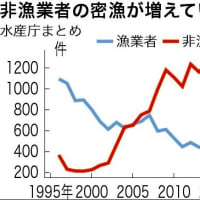

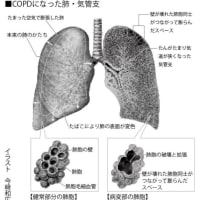
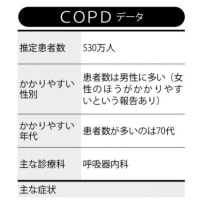
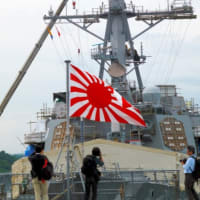
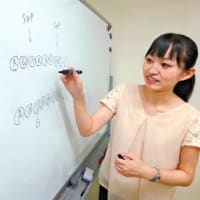


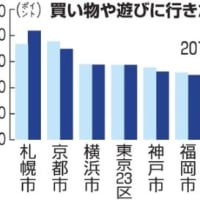





※コメント投稿者のブログIDはブログ作成者のみに通知されます